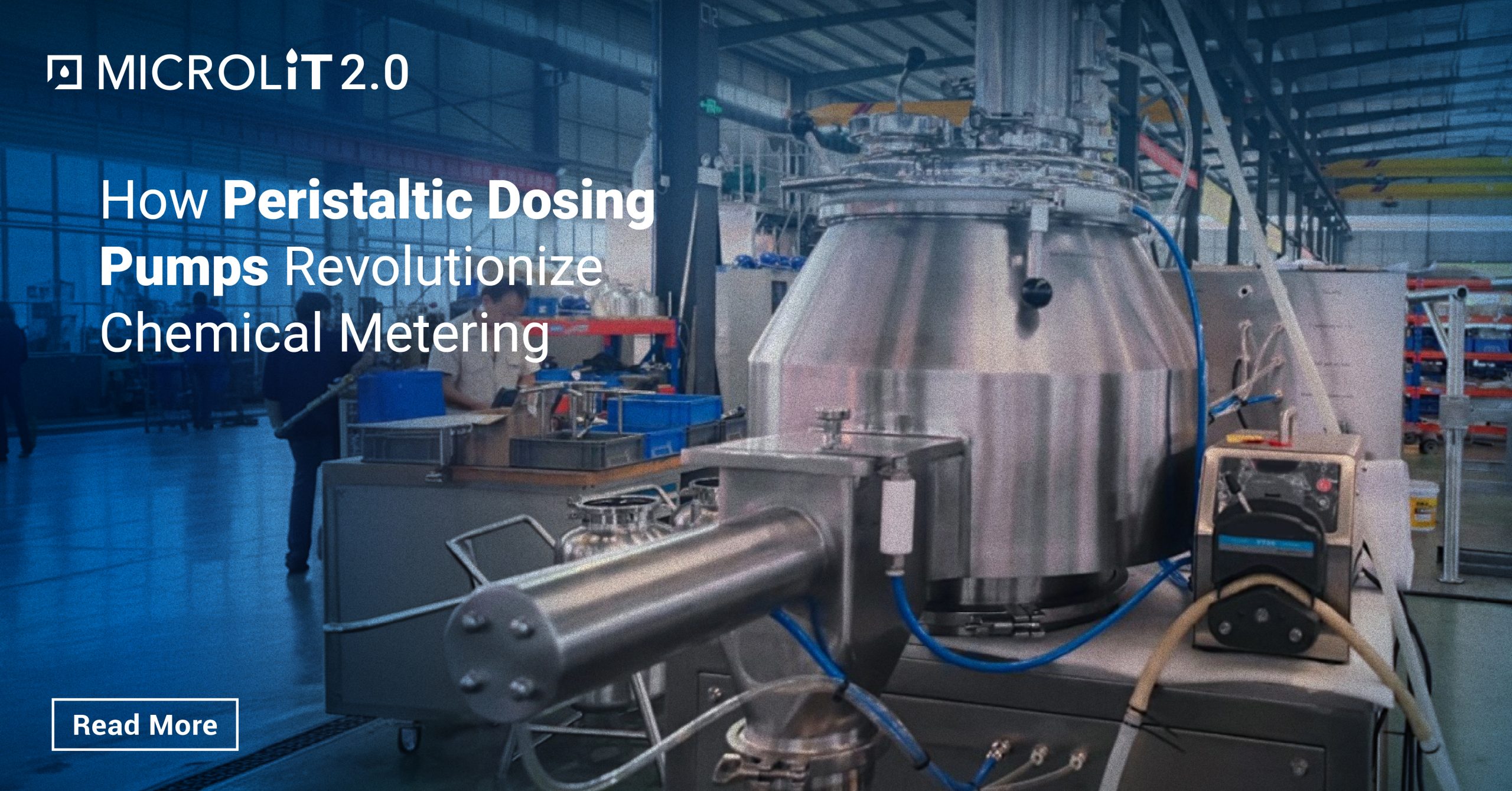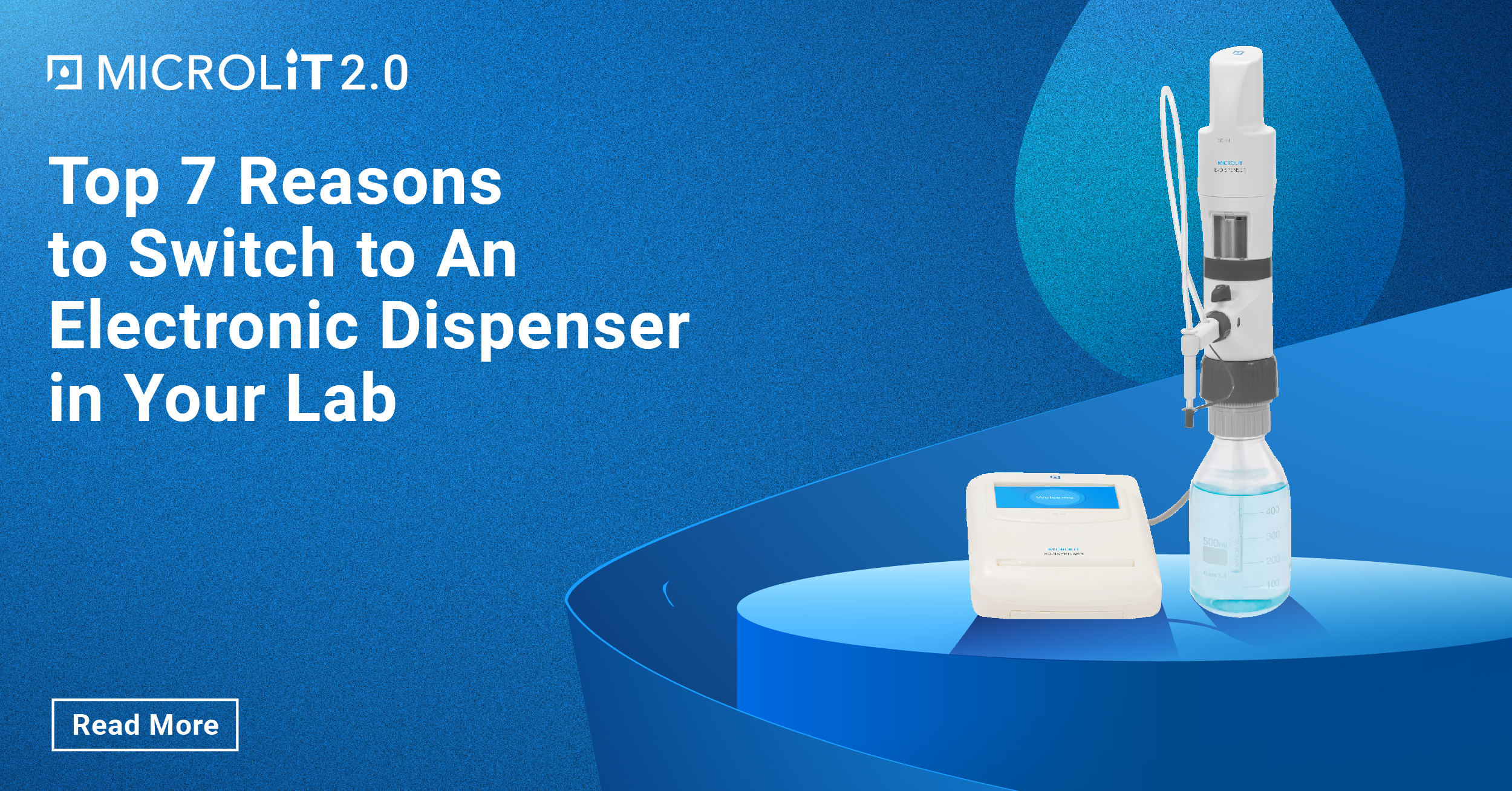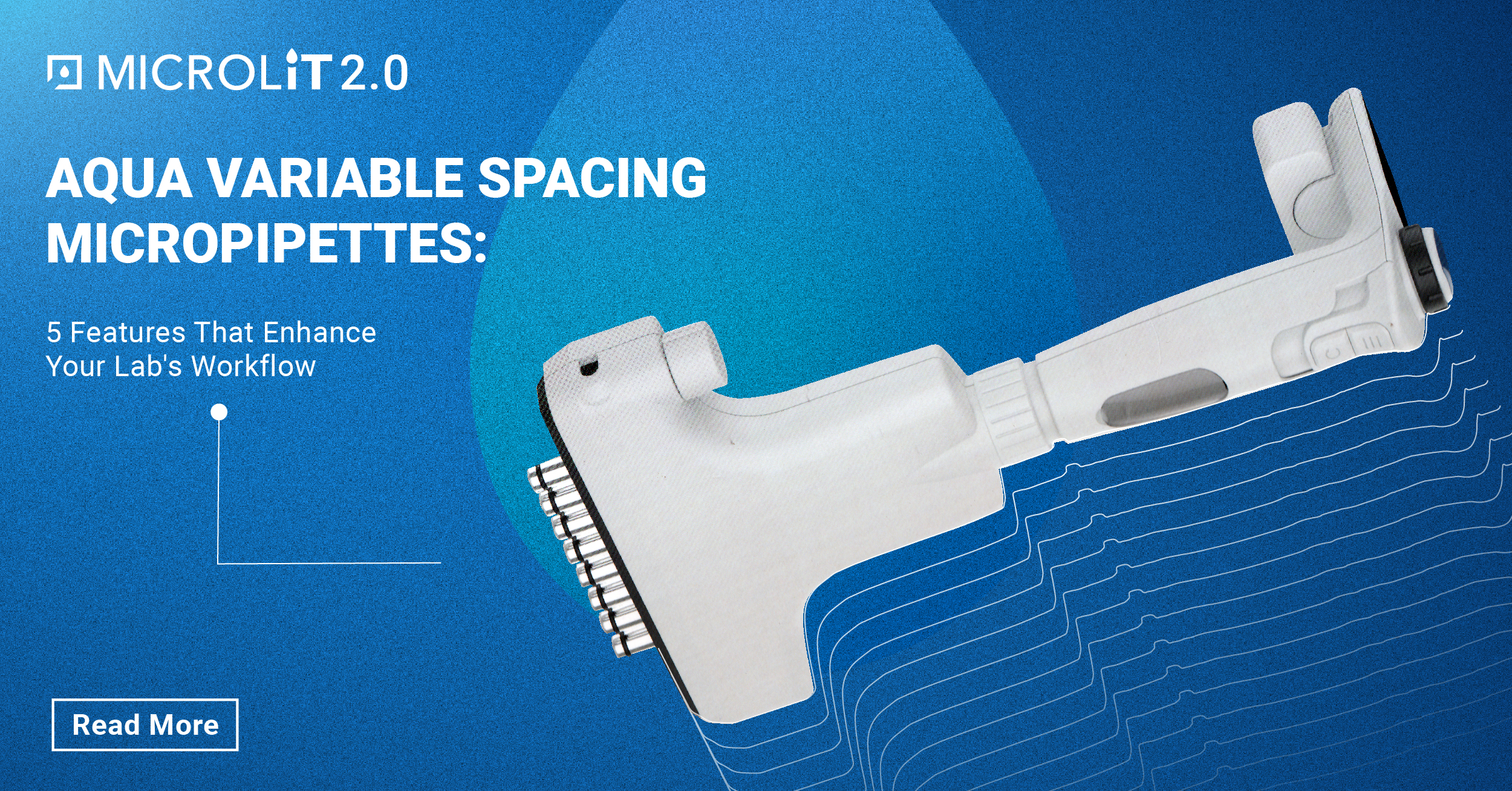From R&D to Quality Control: How Peristaltic Pumps Elevate Laboratory Workflows
- June 23, 2025
- ENQUIRE NOW
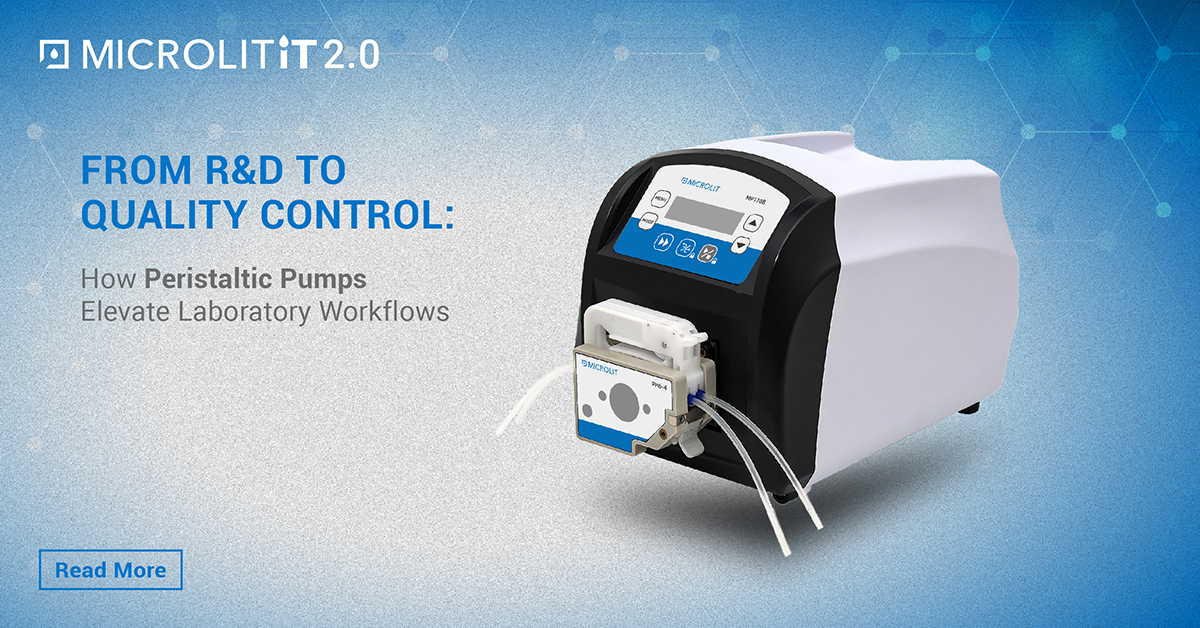
In the intricate world of laboratory research and development (R&D), precision, sterility and reproducibility are paramount. Peristaltic pumps have emerged as indispensable tools in this environment, offering a seamless solution for fluid transfer without compromising sample integrity. This blog delves into the pivotal role of peristaltic pumps across various laboratory applications and highlights how Microlit’s advanced range of laboratory peristaltic pumps caters to the diverse needs of modern laboratories.
The Role of Peristaltic Pumps in Laboratory Applications
Peristaltic pumps operate on a simple yet effective principle: they move fluids through flexible tubing by compressing and releasing it, mimicking peristalsis. This mechanism ensures that the fluid only contacts the tubing, eliminating the risk of contamination from pump components. Such a design is particularly beneficial in laboratory settings where sample purity is non-negotiable.
-
Research & Development
In R&D laboratories, peristaltic pumps facilitate the precise delivery of reagents and solvents in experiments. Their ability to maintain consistent flow rates ensures reproducibility, a cornerstone of scientific research. For instance, in High-Performance Liquid Chromatography (HPLC) systems, peristaltic pumps deliver mobile phases with high precision, maintaining the accuracy and reproducibility of analytical results.
-
Cell Culturing & Fermentation
Peristaltic pumps are integral in processes like cell culturing and fermentation, where the controlled addition of nutrients and media is crucial. Their aseptic design prevents contamination, ensuring the integrity of cell cultures. Additionally, these pumps can be programmed for continuous or batch processes, offering flexibility in experimental setups.
-
Pharmaceutical Applications
In pharmaceutical laboratories, peristaltic pumps are employed in various applications, including the transfer of sterile solutions and the dispensing of reagents. Their gentle pumping action minimizes the risk of sample degradation, making them ideal for handling delicate compounds.
-
Quality Control
During quality control (QC) processes, peristaltic pumps ensure the accurate and consistent delivery of standards and reagents. Their ability to handle a wide range of flow rates and volumes makes them versatile tools in QC laboratories, where precision is critical.
Microlit’s Laboratory Peristaltic Pumps: Precision Meets Innovation
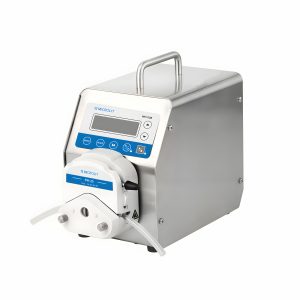 Microlit, a leader in laboratory instrumentation, offers a range of peristaltic pumps designed to meet the diverse needs of modern laboratories. Their pumps combine advanced technology with user-friendly features, ensuring reliability and precision.
Microlit, a leader in laboratory instrumentation, offers a range of peristaltic pumps designed to meet the diverse needs of modern laboratories. Their pumps combine advanced technology with user-friendly features, ensuring reliability and precision.
- Intelligent Dispensing Peristaltic Pumps (MP100I, MP300I, MP600I)
These pumps are designed for precise liquid dispensing, featuring enhanced flow control and a larger LCD touchscreen for user-friendly operation. Supporting RS485 communication, they offer added settings beyond MODBUS, allowing for better integration with different devices. With flow rates ranging from 0.00016 to 3000 ml/min, they cater to a wide array of laboratory applications.
- Clever Flow Peristaltic Pumps (MP100C, MP300C, MP600C)
Engineered for high-precision flow control, these pumps feature an upgraded, larger true-color LCD touchscreen for easier operation. New program modes allow for more complex experimental procedures, and RS485 communication enhances compatibility with various communication equipment. With flow rates ranging from 0.00011 to 3000 ml/min, they are suitable for applications requiring meticulous fluid handling.
- Speed Variable Peristaltic Pumps (MP100B, MP300B, MP600B)
These pumps offer standard functions such as start-stop, speed control, forward/reverse rotation, and include an LCD display, multi-segment dispensing, and an anti-drop feature. Additionally, they support RS485 communication through the MODBUS protocol, allowing seamless integration with other equipment. Their versatility makes them ideal for various laboratory processes.
Real-World Use Cases of Microlit’s Peristaltic Pumps
- Pharmaceutical Research
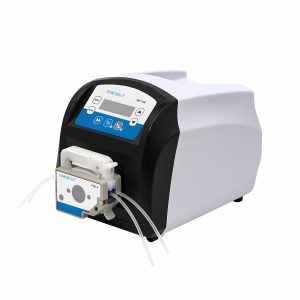 In pharmaceutical research, the need for sterile and precise fluid handling is critical. Microlit’s peristaltic pumps provide a contamination-free transfer of fluids, ensuring the integrity of sensitive compounds. Their ability to handle a wide range of flow rates and volumes makes them suitable for various applications, including reagent dispensing and media transfer.
In pharmaceutical research, the need for sterile and precise fluid handling is critical. Microlit’s peristaltic pumps provide a contamination-free transfer of fluids, ensuring the integrity of sensitive compounds. Their ability to handle a wide range of flow rates and volumes makes them suitable for various applications, including reagent dispensing and media transfer.
- Biochemical Laboratories
In biochemical laboratories, where the handling of enzymes and other delicate substances is routine, Microlit’s peristaltic pumps offer gentle pumping action that minimizes the risk of sample degradation. Their precise flow control ensures accurate dosing, which is essential in experiments requiring exact reagent concentrations.
- Food Technology Laboratories
Food technology laboratories require stringent hygiene standards and careful handling of ingredients. Microlit’s peristaltic pumps meet these demands by providing sterile fluid transfer and precise dosing. Their easy-to-clean design ensures compliance with hygiene protocols, making them ideal for applications in food testing and analysis.
Conclusion
Peristaltic pumps play a pivotal role in enhancing laboratory workflows, from R&D to quality control. Their precision, sterility and versatility make them indispensable tools in modern laboratories. Microlit’s range of laboratory peristaltic pumps offers innovative solutions that cater to the diverse needs of laboratories, ensuring reliability and efficiency in every application.
For more information on Microlit’s laboratory peristaltic pumps and to explore their full range of products, visit Microlit’s official website.



